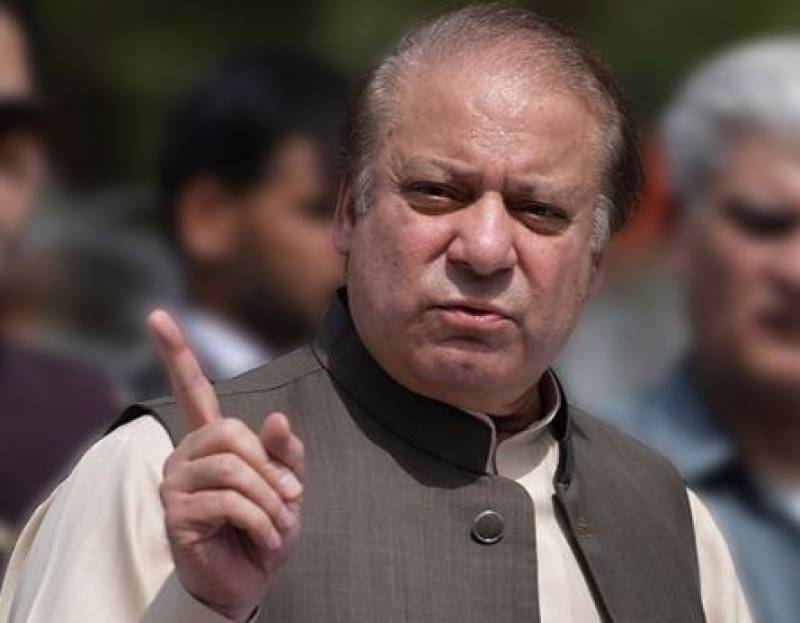Islamabad (Staff Report/Agencies): Ousted prime minister Nawaz Sharif on Thursday disassociated himself with Qatari prince Sheikh Hamad Bin Jassim Bin Jaber Al-Thani’s letters.
While recording his statement in the Al-Azizia reference, the former PM said, “I have no relation with the Qatari prince's letters.”
Accountability court judge Muhammad Arshad Malik resumed hearing the Al-Azizia corruption reference, filed by the National Accountability Bureau last year on Supreme Court orders.
Nawaz answered most of the 151 questions posed to him by the court in the reference.
Responding to a question, Nawaz asserted, “I was not a part of any transaction in any capacity. My name has not been mentioned in any document.”
The former premier also raised reservations over the statements of Wajid Zia, the prosecution’s star witness and Panamagate JIT head. While answering the questions, Nawaz also constantly consulted his counsel, Khawaja Haris.
Sharif family had presented the letters in the Supreme Court to prove its money trail in the Panamagate case, suggesting that Jassim’s elders had business terms with the father of the then Pakistani Premier Nawaz Sharif and the business ties eventually led to the purchase of upscale Avenfield House flats in London.
The letter addressing the apex court stated that in 1980, Mian Muhammad Sharif (Nawaz Sharif’s father) invested 12 million Dirhams in the Al Thani company belonging to the Qatari prince’s father.
“In the year 2006, the accounts in relation to the above investment were settled between Hussain Nawaz Sharif and Al Thani family, who then delivered the bearer shares of the companies referred in para 4 above to a representative of Hussain Nawaz Sharif,” the letter read.
In January 2017, another letter attributed to the same prince was furnished before the top court explaining that the investment quoted in first letter was ‘made by way of provision of cash, which was a common practice in the Gulf region’.


